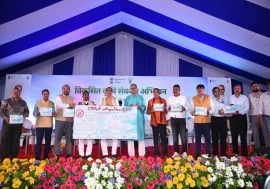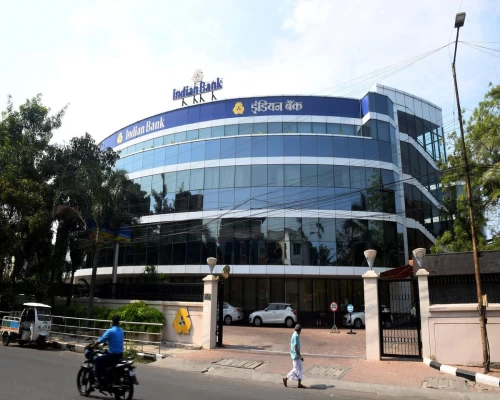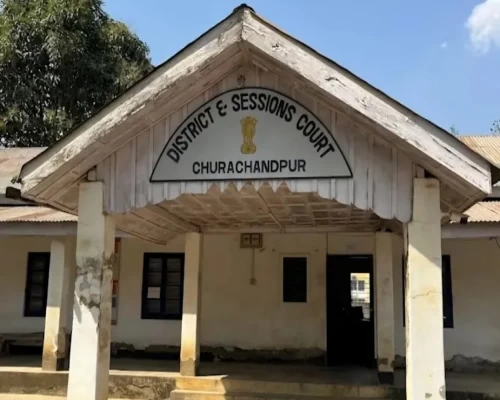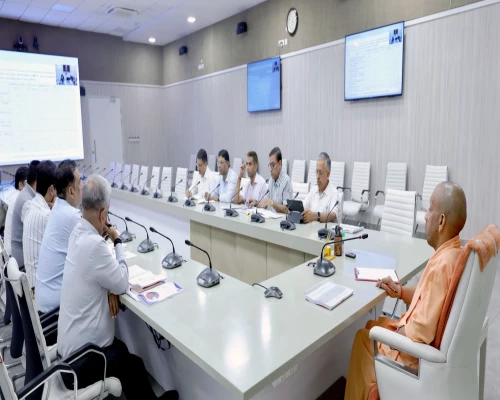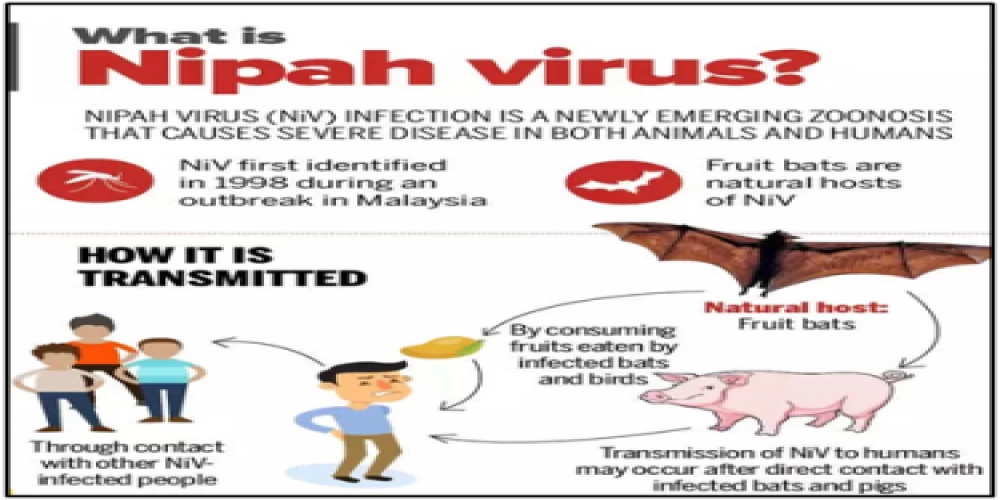
Kerala: The southern state in India is currently facing a critical situation as it grapples with the Nipah virus outbreak. This outbreak is the fourth of its kind in the state since 2018, and the circumstances are becoming increasingly concerning.
Nipah virus is a rare and highly lethal zoonotic virus, primarily transmitted from animals to humans. Bats are the primary natural reservoir of this virus, and it can have devastating consequences when it infects humans.
The response to this outbreak has been swift and comprehensive. In an effort to contain the virus's spread, all educational institutions in Kozhikode, Kerala have been closed for a week. This closure encompasses schools, professional colleges, and tuition centers. However, online classes will continue throughout this period to minimize educational disruptions.
The contact tracing efforts have revealed a growing list of individuals potentially exposed to the virus. As of the latest update, there are 1,080 people on the contact list, with an additional 130 individuals added on September 15th. Among these, a significant number—327—are healthcare workers who are at the forefront of battling the outbreak.
The reach of this outbreak extends beyond Kozhikode, with 29 individuals in other districts listed as contacts of Nipah-infected people. These districts include Malappuram, Wayanad, Kannur, and Thrissur. Within this group, 175 individuals are classified as high-risk contacts, further intensifying the need for effective containment measures.
A significant development in this outbreak is the identification of the index case. The person who passed away on August 30th has now tested positive for Nipah virus, signifying the beginning of the outbreak in the district.
In terms of confirmed cases, Kerala has reported six cases of Nipah Virus. Additionally, 17 individuals who attended the cremation of the man who died on August 30th have been placed under isolation. Presently, four active cases are undergoing treatment in hospitals.
To address the outbreak effectively, hospitals treating Nipah cases have been mandated to establish medical boards. These boards are required to convene twice daily and submit reports to the health department, following strict infectious disease control protocols.
In a bid to bolster treatment efforts, India has sought assistance from Australia and is set to acquire 20 doses of monoclonal antibody for Nipah virus treatment. This collaboration underscores the global nature of the fight against infectious diseases.
While the situation is being closely monitored, neighboring states like Karnataka have issued advisories, urging the public to refrain from unnecessary travel to Nipah-affected areas in Kerala. They have also recommended heightened surveillance in bordering districts and entry points to prevent the virus from spreading further.
Amidst these challenges, Kerala's Health Minister, Veena George, has emphasized the importance of preventive measures. She has advised the public to wear masks, maintain social distance, and seek medical assistance if they experience symptoms such as cold, fever, headache, or cough.
This outbreak highlights the ongoing vulnerability of regions, particularly those with significant forested areas, to zoonotic infections like Nipah virus. Heightened precautions and swift responses are crucial to containing such outbreaks and preventing their escalation. /BI/


